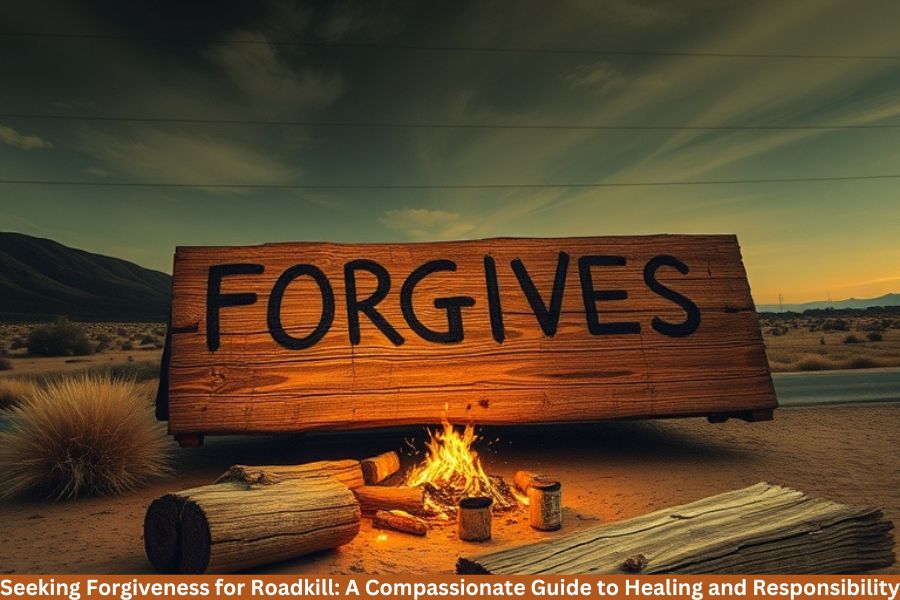
Accidentally harming an animal can leave a heavy emotional burden. Humans are clearly empathetic creatures, and seeing the lifeless shape of an animal can trigger emotions of guilt and sorrow.
Why Roadkill Affects Us Emotionally
- Connecting with Nature: Animals are an indispensable part of our surroundings. Many people experience a connection to the natural world, so harming an animal—albeit by accident—appears like we’ve betrayed that bond.
- Guilt and Responsibility: Whether it’s a squirrel or a deer, we frequently reflect on how our actions contributed to their dying. This feeling of responsibility can weigh on us closely.
Cultural and spiritual views on roadkill
Different cultures view existence and dying through specific lenses, regularly rooted in spirituality.
Respect for Life in Different Traditions: Many indigenous cultures agree with honoring all forms of life, together with animals. In these traditions, one can perform rituals or prayers to seek forgiveness and express admiration.
The importance of acknowledging the incident.
Facing the Reality of What Happened
The first step in requesting forgiveness is accepting what took place. It’s ordinary to experience dissatisfaction, but avoiding the situation won’t assist.
Why Ignoring It Feels Wrong
Ignoring roadkill can be dismissive of the animal’s life. Acknowledgment, even in small methods, indicates recognition and enables you to process your emotions.
Steps to Asking for Forgiveness
Self-Reflection
Before taking action, spend some time understanding your feelings.
- Identifying Your Feelings: Are you feeling guilt, unhappiness, or helplessness? Recognizing those feelings is a vital step in recovery.
- Understanding the Event’s Impact: Consider how this incident influences you and your attitude toward use, responsibility, and nature.
Offer a gesture of respect.
- Burial or Removal: If the animal is secure, either move it to the side of the street or bury it. This small act can deliver closure.
- A Small Act of Gratitude to Nature: Planting a tree or donating to wildlife conservation can be meaningful methods to honor the lifestyles that have been lost.
Spiritual or Personal Forgiveness Rituals
Some human beings find solace in appearing in a ritual to look for forgiveness.
- Prayers or Meditations: A second of silence or prayer can be deeply comforting.
- Writing a Letter: Expressing your thoughts to an animal or to nature can be a therapeutic way to express regret and seek peace.
Preventing Future Incidents
Drive Responsibly
Prevention is continually higher than treatment.
- Slowing Down in Wildlife Zones: Speed limits exist primarily in areas where animals are considered to be in motion.
- Understanding Animal Behavior: Learn about nearby wildlife patterns. For instance, deer are extra energetic at dusk and sunrise.
Advocate for Safer Roads
- Wildlife Crossings: Support projects that create secure passageways for animals.
- Community Awareness Campaigns: Educate your community on the significance of using caution in flora and fauna areas.
Moving Forward with a Clearer Conscience
Learning from the Experience
Each joy, regardless of how painful, teaches us something precious. Use this incident as a catalyst to become a more conscientious driver and advocate for wildlife safety.
Finding Peace in Responsibility
By taking steps to become renowned, seeking forgiveness, and preventing future incidents, you can move forward with a lighter heart.
Conclusion
Accidentally causing the death of an animal on the road is a distressing experience, but it’s also an opportunity to reflect on our connection with nature and our responsibilities as drivers. By acknowledging the incident, seeking forgiveness, and taking steps to prevent future occurrences, you can transform guilt into meaningful action. Small gestures of respect, personal rituals, and advocacy for wildlife safety not only help you heal but also honor the life lost.
FAQs
Why do people feel so guilty about roadkill?
Humans clearly empathize with animals, and taking a life, even accidentally, can cause deep guilt.
What should I do immediately after hitting an animal?
Safely stop your vehicle, assess the situation, and contact the local government if necessary.
Are there legal responsibilities related to roadkill?
In some regions, reporting roadkill is required, specifically for larger animals like deer or moose.
Can performing a ritual assist me in passing on?
Yes, rituals like prayers, meditations, or symbolic gestures can provide emotional closure.
How can I prevent you from becoming roadkill in the future?
Drive carefully, mainly in natural world zones, and support tasks that promote more secure roads for animals.
